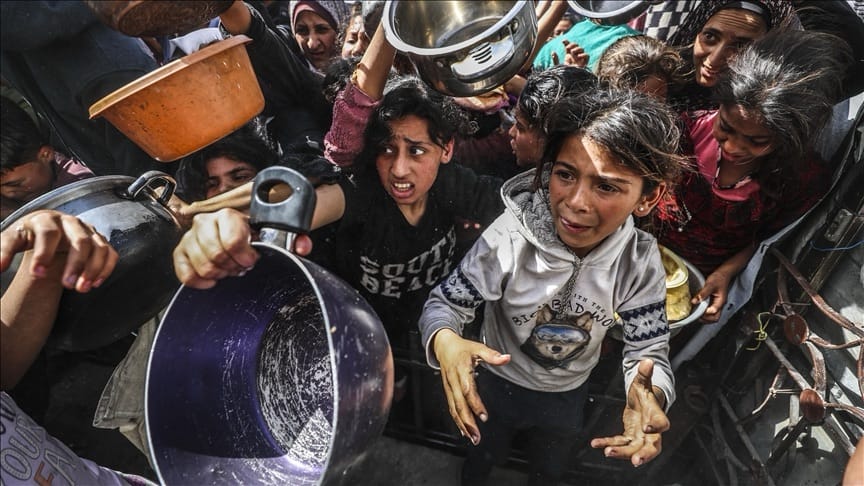UN rejects Israeli aid plan for Gaza, calls it ‘dangerous’, politicized
The United Nations has forcefully rejected a new Israeli proposal to reshape humanitarian aid delivery in Gaza, warning it violates core humanitarian principles and risks putting civilians and aid workers in harm’s way.

File Source: AA
The United Nations has forcefully rejected a new Israeli proposal to reshape humanitarian aid delivery in Gaza, warning it violates core humanitarian principles and risks putting civilians and aid workers in harm’s way.

In a rare and strongly worded statement released Sunday, the UN Office for the Coordination of Humanitarian Affairs (OCHA) accused Israel of attempting to dismantle the existing UN-run distribution system and replace it with a militarized aid scheme controlled through Israeli checkpoints and private contractors.
“The design of the plan presented to us will mean large parts of Gaza, including the less mobile and most vulnerable people, will continue to go without supplies,” the agency said. “It contravenes fundamental humanitarian principles and appears designed to reinforce control over life-sustaining items as a pressure tactic – as part of a military strategy. It is dangerous, driving civilians into militarized zones to collect rations, threatening lives, including those of humanitarian workers, while further entrenching forced displacement.”
The proposed system—first reported Friday by *The Times of Israel*—would reportedly sideline the UN and involve international NGOs and private contractors distributing aid directly to families, under IDF security but without direct military handling of supplies. Israeli officials argue this approach would curb Hamas’s alleged diversion of humanitarian aid, a claim widely disputed by relief groups.
Despite support from Israel’s cabinet—approved Sunday night with only far-right National Security Minister Itamar Ben Gvir voting against—the plan has sparked backlash across the humanitarian sector. All UN agencies and international NGOs working in the Occupied Palestinian Territory have jointly refused to participate.
“The UN Secretary-General and the Emergency Relief Coordinator have made clear that we will not participate in any scheme that does not adhere to the global humanitarian principles of humanity, impartiality, independence and neutrality,” OCHA said.
The U.S. has taken a sharply different tone. A State Department official told *Axios* the proposal represented “a creative, outside-the-box thinking solution to a difficult problem,” adding, “It is a really bad optic for these groups to be on the same side as terrorist Hamas on this.”
But aid groups argue the plan erodes neutrality and could turn relief operations into tools of conflict. One UN source described it as an attempt to “militarize humanitarian access.”
While Israel has not released the full details of the plan publicly, aid groups have documented extensive conversations with Israeli officials. The *Associated Press* reviewed over 40 pages of internal notes showing growing concerns from NGOs over security, access, and ethical implications.
No official timeline has been set for implementation, but Israeli officials say time is running out to avoid a full-scale humanitarian collapse in Gaza. The security cabinet’s approval of the aid plan came alongside a unanimous vote to expand military operations in the Strip, though that escalation is expected to wait until after U.S. President Donald Trump’s upcoming visit.
The war, now in its eighth month, was sparked by the October 7 Hamas attack that killed roughly 1,200 people in southern Israel and led to the capture of 251 hostages. Israel’s ongoing military campaign has since devastated much of Gaza and resulted in over 51,000 Palestinian deaths, according to health officials in the territory.














